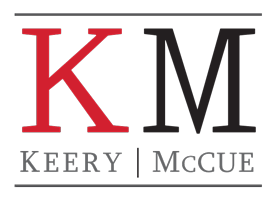PRACTICE AREAS
FAQs
- WHAT IS A CHAPTER 7 BANKRUPTCY?
A Chapter 7 Bankruptcy is a proceeding under the federal law where a person (“Debtor”) is released (discharged) from paying a portion or all of his or her unsecured debts. By filing bankruptcy, the Debtor keeps those assets that are exempt and continues to pay on secured items they want to keep (house, car). The Debtor surrenders any non-exempt assets to the US Trustee for liquidation and pro-rata distribution to the unsecured creditors. Some types of debts, however, cannot be discharged in bankruptcy.
- HOW DOES CHAPTER 13 BANKRUPTCY WORK?
As in any chapter of Bankruptcy, the Debtor(s) file a Bankruptcy Petition, Schedules, and a Statement of Affairs, along with other documents with the Bankruptcy Court. These documents are reviewed by the Chapter 13 Trustee and other creditors. In addition to the documents the Debtors also file a Plan of Reorganization. Chapter 13 Bankruptcy is often called a debt adjustment bankruptcy. The intention is that over the next 3 to 5 years the Debtors will pay all their projected disposable income (income minus allowed expenses- see Trustee Guidelines and Census Bureau and IRS Data) to their creditors by way of the Bankruptcy Trustee. At the end of their Plan period their remaining unpaid debts will be discharged, unless they are non-dischargeable. Chapter 13 varies widely from district to district depending on the custom and attitudes of the local trustees and judges about what is “reasonable” and in “good faith”. A successful Chapter 13 case always requires an experienced bankruptcy lawyer familiar with the prevailing judicial attitudes in the district and the myriad of written local rules and district common law decisions. The failure rate for those who try their Chapter 13 case without an attorney is at least 97%.
- WILL I EVER BE ABLE TO GET CREDIT AGAIN FOLLOWING A BANKRUPTCY?
Yes! A number of banks now offer “secured” credit cards where a debtor puts up a certain amount of money (as little as $200) in an account at the bank to guarantee payment. Usually the credit limit is equal to the security given and is increased as the debtor proves his or her ability to pay the debt. Under current underwriting guidelines, a Debtor is eligible for mortgage loans on terms as good as those of others, with the same financial profile, who has not filed bankruptcy after as little as two years. The size of your down payment and the stability of your income will be much more important than the fact you filed bankruptcy in the past. The fact you filed bankruptcy stays on your credit report for 10 years. The impact of the bankruptcy filing diminishes in impact as time elapses. Many creditors consider post bankruptcy Debtors a good credit risk given their lower levels of unsecured debt and inability to re-file for another bankruptcy for the proscribed statutory period.
- HAVE ANY MORE QUESTIONS? PLEASE FEEL FREE TO CALL OUR OFFICE OR SCHEDULE A CONSULTATION BY FILLING OUT THE form below.
Neither the information on this website or transmissions through the website are intended to provide legal or other advice, nor create an attorney – client relationship.

